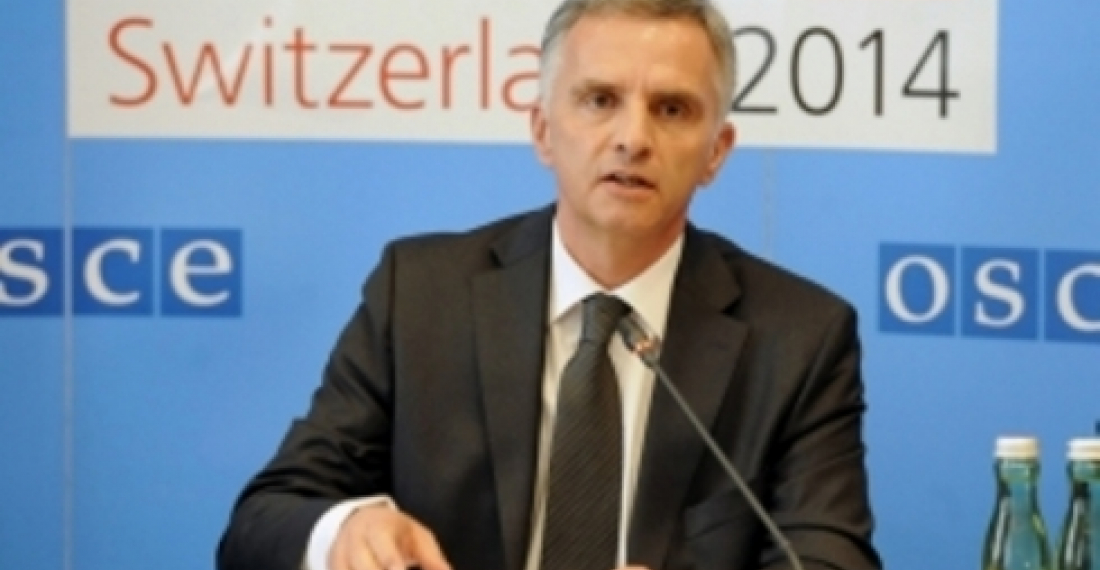The OSCE Chairperson-in-Office and Swiss Foreign Minister, Didier Burkhalter, together with the Co-Chairs of the OSCE Minsk Group, have expressed their deep concern about the intense upsurge in violence along the Line of Contact and Armenian-Azerbaijani border that resulted in numerous casualties reported in recent days.
The Chairperson-in-Office and the Co-Chairs of the Minsk Group said that they were deeply concerned about the fact that a clearly marked International Committee of the Red Cross (ICRC) vehicle came under fire while assisting the local population on the Armenian-Azerbaijani border on a humanitarian mission. They strongly condemned the deliberate targeting of civilians and shooting at representatives of international organizations and reminded the parties of their obligations under Geneva Conventions.
They appealed to the Presidents of Armenia and Azerbaijan to take immediate action to defuse tensions and respect the ceasefire agreement. Retaliation and further violence will only make it more difficult to continue efforts to bring about a lasting peace, the Chairperson-in-Office and the Co-Chairs of the Minsk Group emphasized. They also urged the Presidents of Armenia and Azerbaijan to resume as soon as possible negotiations on peaceful settlement of the conflict, being the only way to bring peace and genuine reconciliation to the peoples of the region.
They extended their condolences to the families of the victims of the recent incidents and shared the anguish of their grievous losses.
source: commonspace.eu with osce.org
photo: The Chairman-in-Office of the OSCE and Swiss Foreign Minister, Didier Burkhalter (archive picture).







